
the first ever Tennis bracelet
Uncover the history of the tennis bracelet—from its Art Deco roots as a diamond line bracelet to its rise in popularity after Chris Evert’s iconic U.S. Open moment. Learn why tennis bracelets remain timeless and elegant.

The History of the Tennis Bracelet
From Diamond Line to Iconic Luxury
The tennis bracelet is a staple of timeless luxury—delicate, dazzling, and endlessly wearable. But before it earned its sporty name, this elegant piece of wristwear had a rich history rooted in the world of fine jewelry. Originally called the diamond line bracelet, it gained global attention after a famous moment on the tennis court in the 1980s. Since then, it’s become one of the most beloved bracelet styles in jewelry history. In this article, we explore the full history of the tennis bracelet, including how it got its name, why it became so popular, and how it continues to evolve as a symbol of refined elegance.

What Is a Tennis Bracelet?
A tennis bracelet is a type of bracelet featuring a single row of diamonds or gemstones, usually set in a straight line and linked for flexibility. Typically made of white gold, yellow gold, or platinum, tennis bracelets are celebrated for their sleek, symmetrical sparkle and lightweight wearability.
This design wasn’t always called a tennis bracelet. It was originally known as a diamond line bracelet or eternity bracelet, and its elegant simplicity made it a staple of 20th-century fine jewelry collections long before it became associated with the sport of tennis.
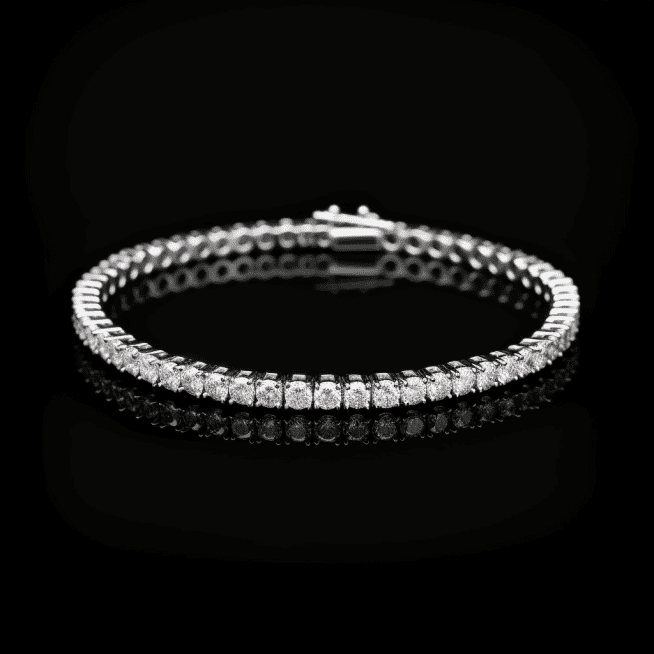
Diamond Line Bracelet Origins: The Pre-Tennis Era
The earliest versions of tennis bracelets date back to the Art Deco era of the 1920s and 1930s. This was a period when geometric design, symmetry, and innovation in fine jewelry flourished. The diamond line bracelet became popular for its minimalist charm and luxurious sparkle, offering a continuous row of perfectly matched diamonds set in platinum or white gold.
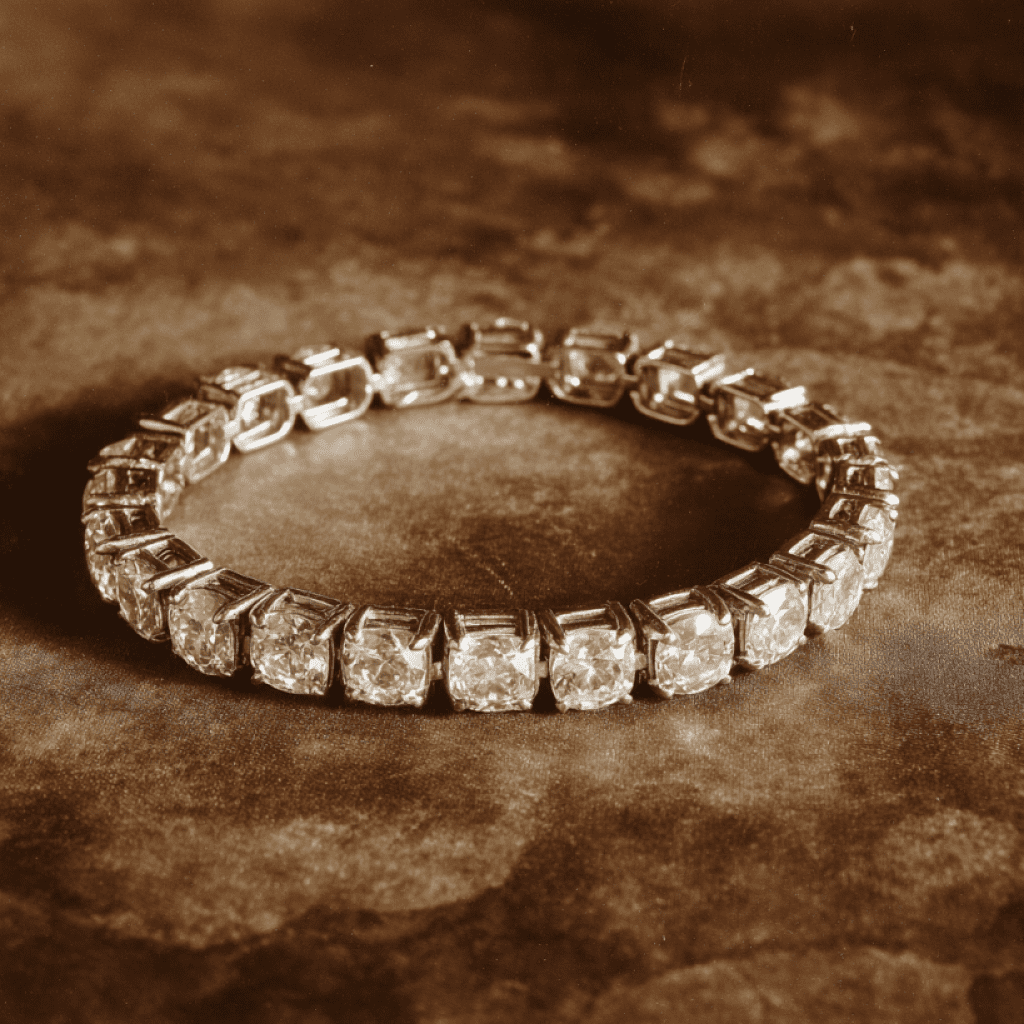

These bracelets were prized for their craftsmanship and were often worn as part of formal evening attire. Although they didn’t yet have the athletic connotation we know today, their flexible settings and low profiles made them surprisingly practical—and visually stunning.
How the Tennis Bracelet Got Its Name: The Chris Evert Incident
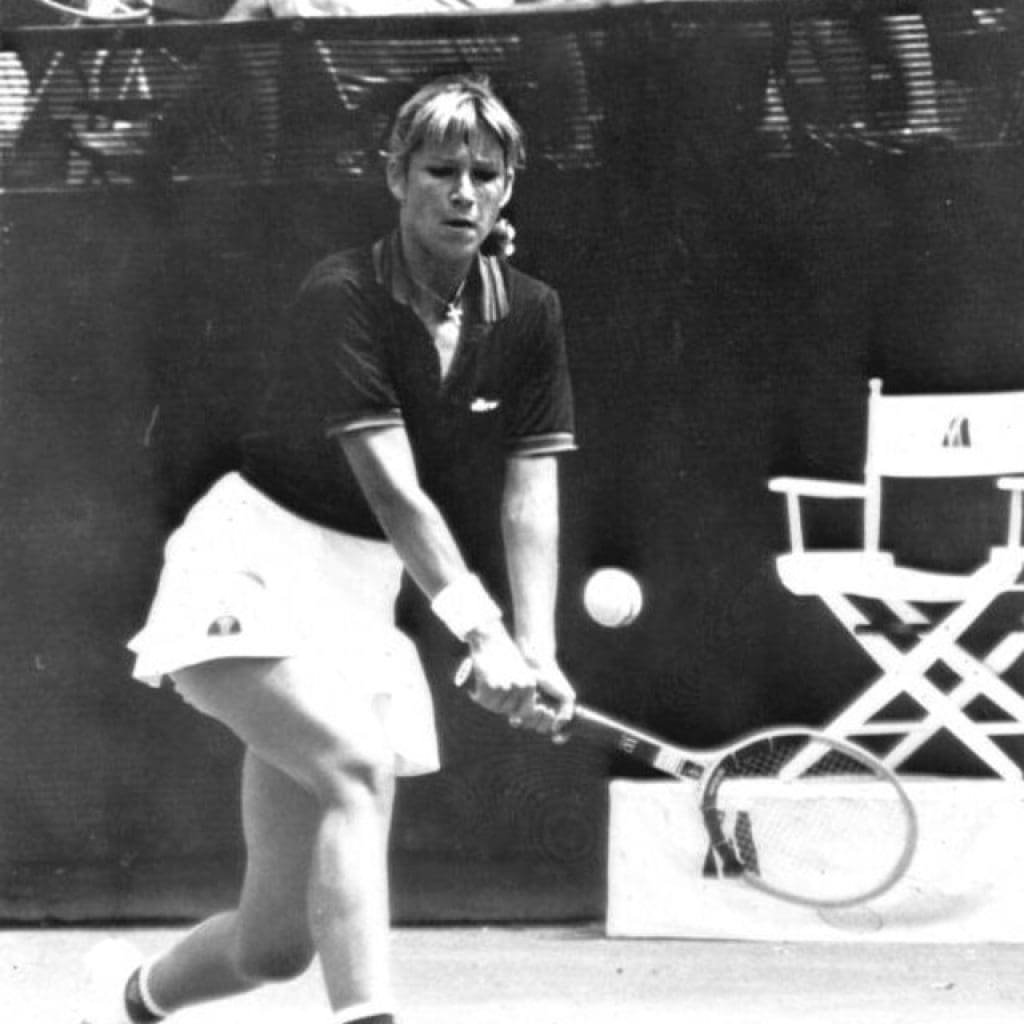
The term “tennis bracelet” entered popular vocabulary thanks to a now-legendary incident during the 1987 U.S. Open. American tennis star Chris Evert was wearing a diamond line bracelet while competing when it suddenly snapped and flew off her wrist mid-match. She paused the game to retrieve the bracelet, prompting media attention and public curiosity.
Afterward, jewelers began referring to that style as a “tennis bracelet,” combining its elegance with the unexpected sporty moment that brought it into the spotlight. This rebranding helped position the bracelet as both stylish and functional—something you could wear every day, not just on special occasions.
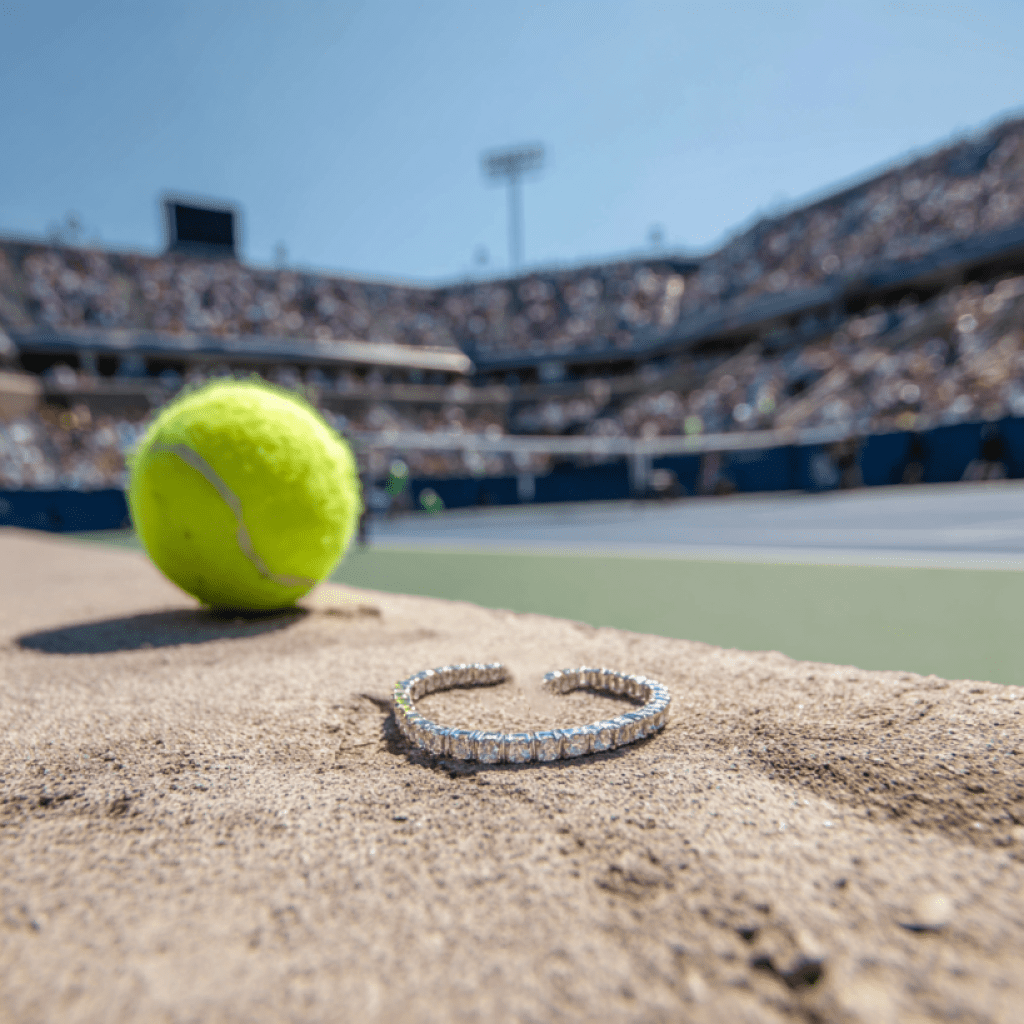
Why Tennis Bracelets Became So Popular
The Chris Evert incident gave the bracelet visibility, but its enduring popularity comes from its unique blend of luxury and practicality. The tennis bracelet is lightweight, comfortable, and durable—making it ideal for both active lifestyles and upscale events. Its flexible design hugs the wrist, offering movement without compromising on elegance.
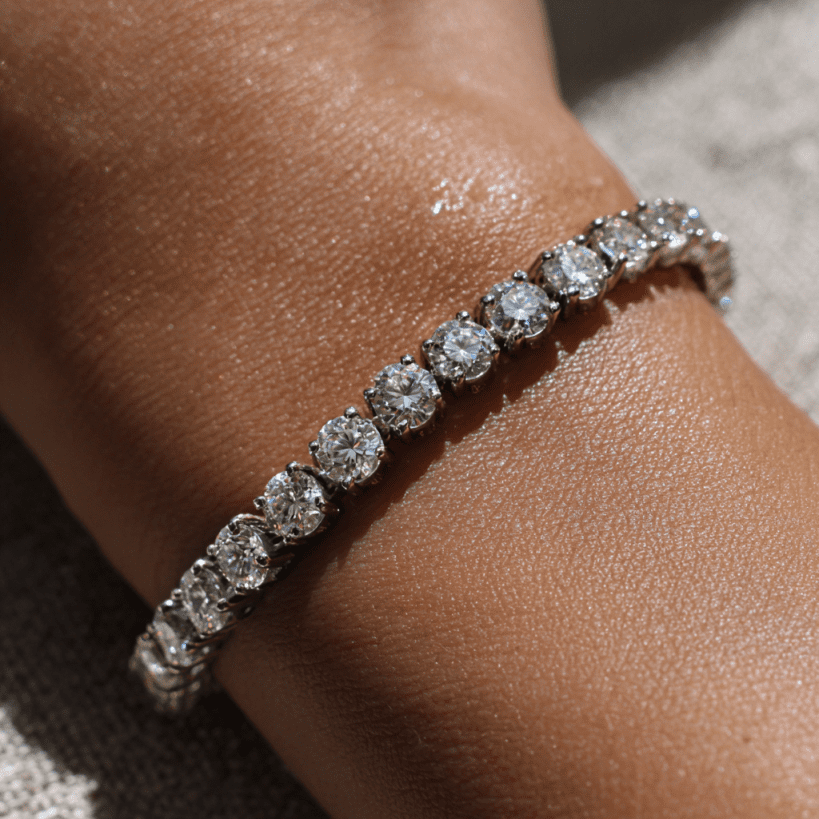
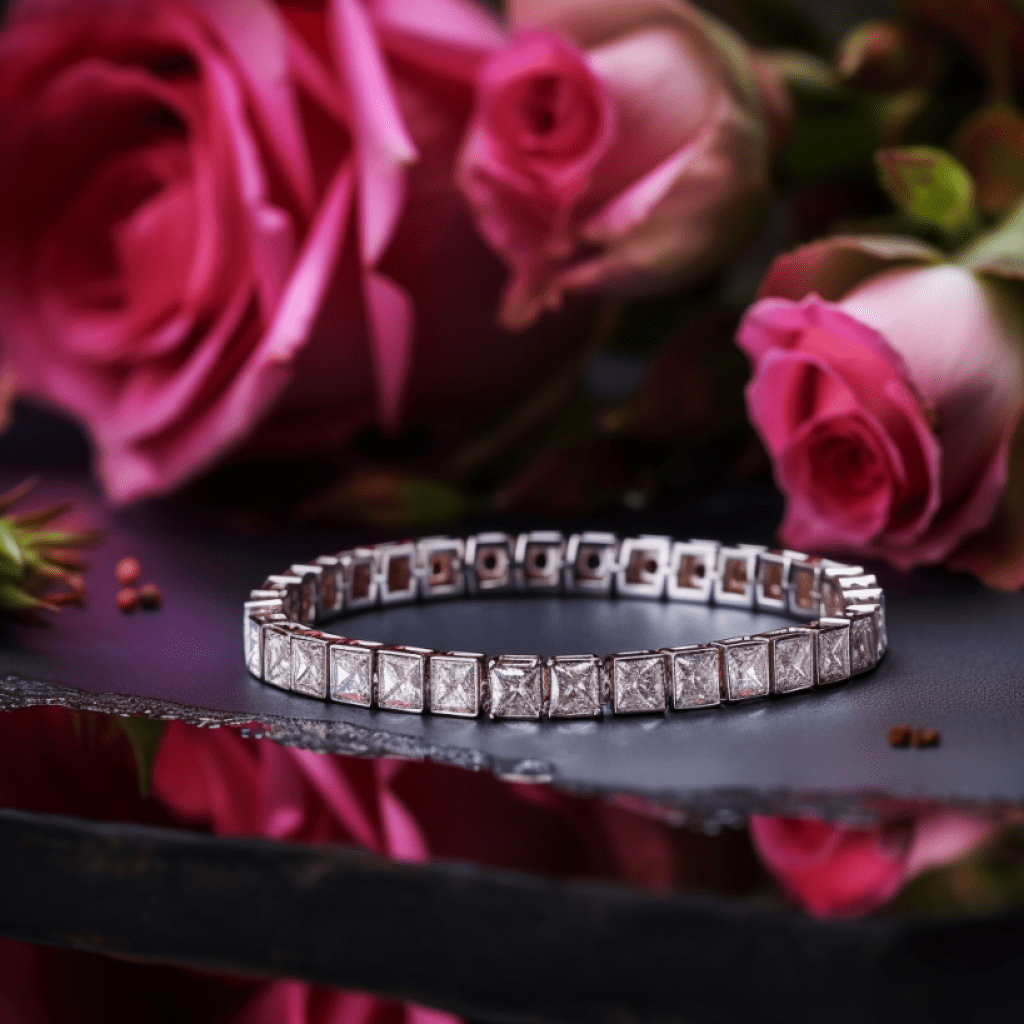
Additionally, tennis bracelets have emotional appeal. They’re often gifted for milestones like anniversaries, graduations, or birthdays. Evert’s decision to halt a championship match to find hers highlighted the bracelet’s personal value—it wasn’t just jewelry, it was meaningful. That blend of function, fashion, and sentiment gave it long-term staying power.
Modern Tennis Bracelets: Trends and Variations
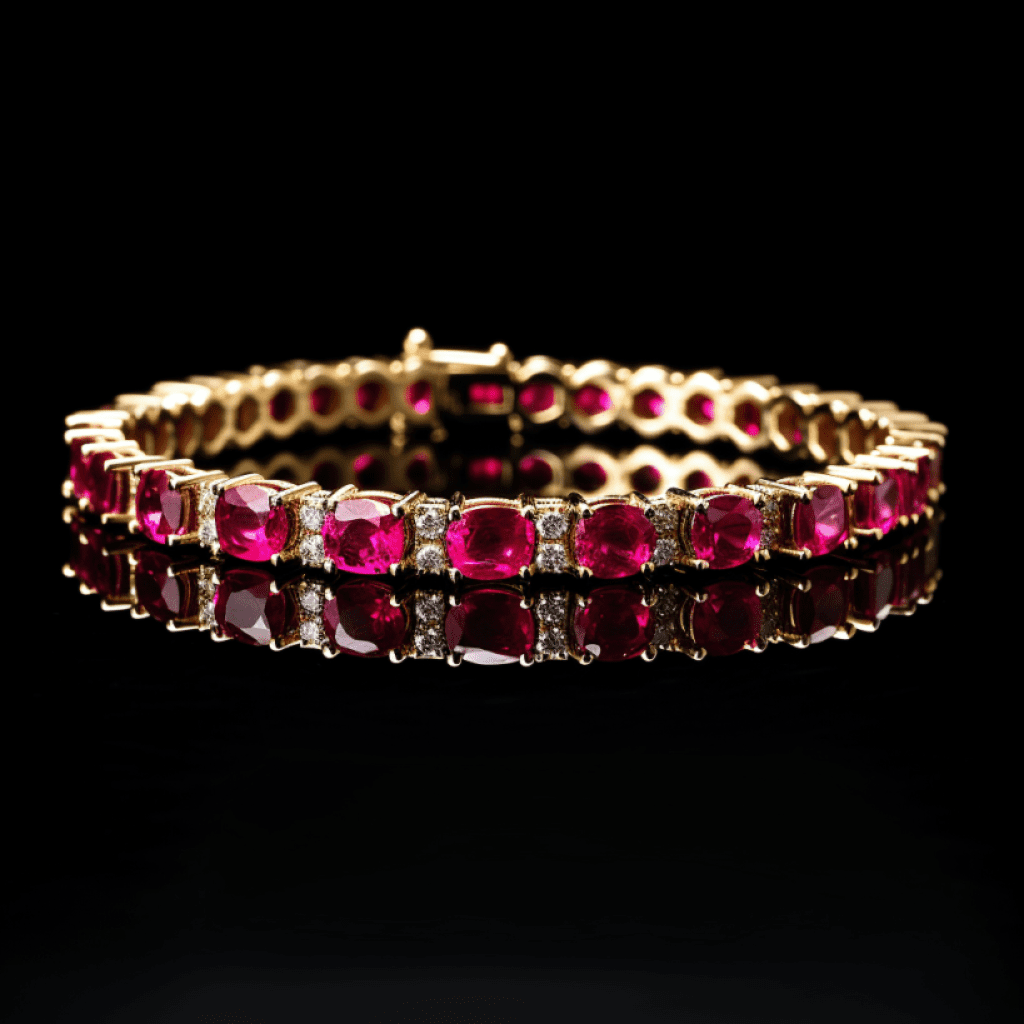
Today’s tennis bracelet designs have expanded far beyond the original diamond-only style. While the classic white diamond tennis bracelet in gold or platinum remains a favorite, many modern versions feature colored gemstones, lab-grown diamonds, bezel settings, and even adjustable chains for custom fit. Some are even designed to stack with watches or bangles, adding a contemporary twist to the timeless form.
This versatility has kept tennis bracelets relevant across fashion cycles. From minimalist to bold, vintage to modern, the tennis bracelet adapts while maintaining its core identity: an unbroken line of brilliance that symbolizes strength, love, and refined taste.
The Lasting Legacy of the Tennis Bracelet
The tennis bracelet’s history is a story of elegance, endurance, and a little bit of luck. What started as a classic diamond line bracelet became an iconic, cross-generational accessory after one unforgettable moment on the court. Today, whether worn by athletes, celebrities, or everyday jewelry lovers, the tennis bracelet remains a testament to the power of beauty and function coming together.

Resources:
- A Brief History of Tennis Bracelets: https://taylorandhart.com/
- The History of the Tennis Bracelet: https://www.townandcountrymag.com/
- ¹Chris Evert by Unknown: https://commons.wikimedia.org/
- Blog outline and revising assisted by AI resources such as Google Gemini.
Interested in Restoring Your Tennis Bracelet?





Our team has gemologists certified by

We are proud members of the

